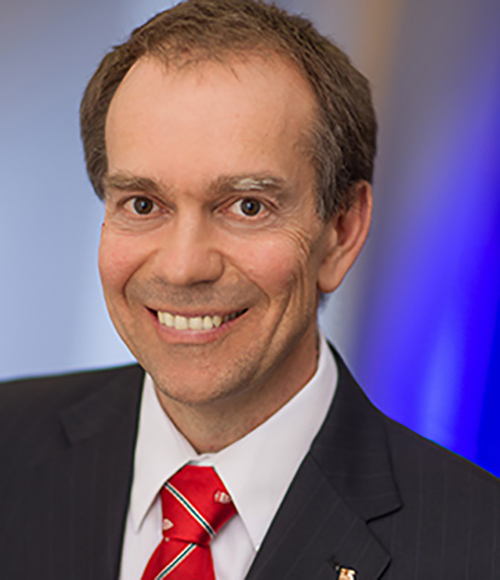CMA General Council: Influencing the future of medicine

Each year for the past 146 years, the Canadian Medical Association (CMA) has held an annual General Council meeting in a dif-ferent Canadian city. I had the pleasure of attending this year’s 4-day meeting held in Calgary, Alberta, as the BCMA president, a role that gave me a fresh perspective.
The annual meeting provides an opportunity to discuss important topics in a forum of our peers, attend informative seminars and earn valuable CME credits, and to have some fun. Physicians can network and share knowledge with colleagues from across the country, which can only make our national and provincial health care systems stronger. It’s also an opportunity for the approximately 80 000 physicians of Canada to take a national stand by universally adopting a policy or making a public statement about an issue affecting physicians or the health of our patients.
Sometimes these conversations start with just one physician who has a desire for change, and who ends up gaining national support. Health care policies passed at General Council carry great weight, and the CMA can lobby the feder-al government on important policy and health-related concerns knowing that they’re doing this on behalf of physicians across the country.
I’m proud to say that 19 of the motions (20%) brought forth to GC this year came from BC. And I’m even more pleased to report that 16 of the motions were adopted, including a palliative care approach for life-limiting chronic disease patients, advance care planning, scope of practice, community-based interventions for social determinants of health, conflict of interest, and safe-injection sites, to name a few. The scope of these motions highlights BC doctors’ progressive thinking, demonstrates their depth of knowledge, and recognizes that many factors impact the effective delivery of health care services.
Many lively conversations ensued as these motions were put forth, but without a doubt, the most important discussion centred on end-of-life care. Due to advances in technology, many people at the end of life suffer from multiple complex diseases. It was recognized that physicians need to focus on the patient in the three domains of end-of-life care: late-life care (advanc-ed, chronic, and complex care), palliative care (after a life-limiting diagnosis), and terminal care.
This led to a discussion of the importance and necessity of advance care directives. It also led to a discussion re-garding medically assisted death. There was a palpable discomfort among many delegates on the topic. However, some provinces, such as Quebec, are clearly more advanced in their discussions and decisions. Although no consensus was reached, it was agreed that the focus must remain on what the patient wants.
Another interesting topic was the issue of physician resources and the need for aligning training with the health care needs of the public. Support for medical students was discussed, including formal career counseling in medical school and residency, and the ability to change career focus more easily during residency and beyond. It was suggested that balancing the health care needs of the public with physician demand requires collaborative committees with medical associations, the ministries of health, health authorities, and teaching institutions in each province, as well as a national data repository.
The BCMA has long been concerned about the future of the physician workforce, and in 2011 the organization wrote a detailed policy paper making a number of recommendations, including those discussed at General Council. This is just another reason why I feel honored to be representing the BCMA this year.
Speaking of being honored, BC featured prominently—the CMA’s highest honor, the F.N.G. Starr Award, was awarded to Dr Julio Montaner of Vancouver. Dr Montaner is a global leader in the fight against HIV/AIDS. Thanks to his work in BC, the incidence of AIDS here has declined by more than 80% in the past 20 years. It never ceases to amaze me what individual colleagues have accomplished—it is quite humbling.
Lastly, I was a vocal opponent (along with many of my BC colleagues) to the CMA motion to increase dues. Unfortunately, the CMA dues will increase by 10%, but it should be noted that the BCMA will not be in-creasing its annual dues.
I always enjoy attending CMA’s General Council meetings, but especially enjoyed attending this year’s meeting as your representative. To have a role, no matter how small, in advancing the future of health care in this country is a humbling and rewarding experience.
—William Cunningham, MD
BCMA President

